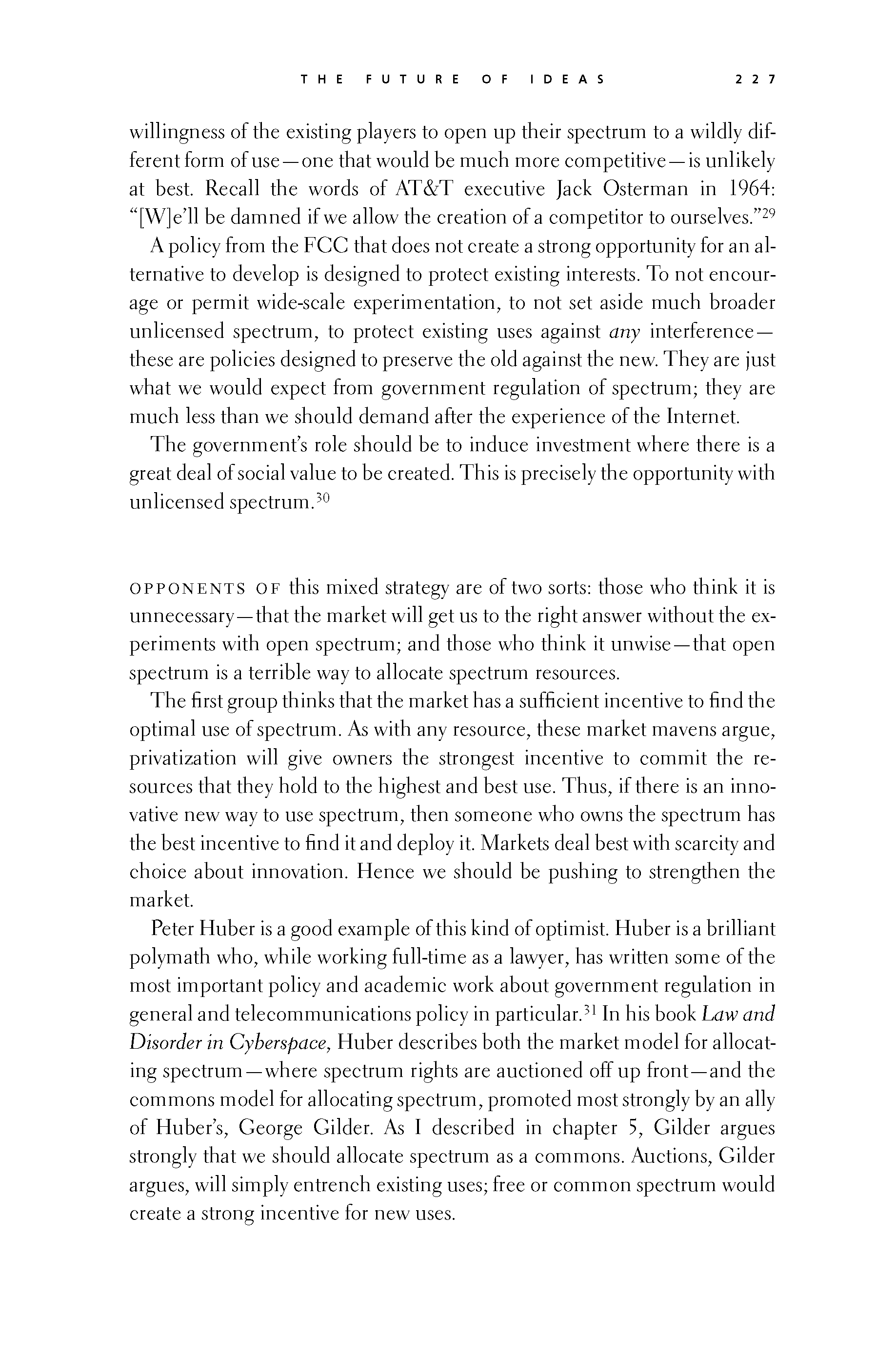 p226 _
-chap- _
toc-1 _
p227w _
toc-2 _
+chap+ _
p228
p226 _
-chap- _
toc-1 _
p227w _
toc-2 _
+chap+ _
p228
willingness of the existing players to open up their spectrum to a wildly dif-
ferent form of use -- one that would be much more competitive -- is unlikely
at best. Recall the words of AT&T executive Jack Osterman in 1964:
"[W]e'll be damned if we allow the creation of a competitor to ourselves."[12-29]
A policy from the FCC that does not create a strong opportunity for an al-
ternative to develop is designed to protect existing interests. To not encour-
age or permit wide-scale experimentation, to not set aside much broader
unlicensed spectrum, to protect existing uses against _any_ interference --
these are policies designed to preserve the old against the new. They are just
what we would expect from government regulation of spectrum; they are
much less than we should demand after the experience of the Internet.
The government's role should be to induce investment where there is a
great deal of social value to be created. This is precisely the opportunity with
unlicensed spectrum.[12-30]
///\\\
Opponents of this mixed strategy are of two sorts: those who think it is
unnecessary -- that the market will get us to the right answer without the ex-
periments with open spectrum; and those who think it unwise -- that open
spectrum is a terrible way to allocate spectrum resources.
The first group thinks that the market has a sufficient incentive to find the
optimal use of spectrum. As with any resource, these market mavens argue,
privatization will give owners the strongest incentive to commit the re-
sources that they hold to the highest and best use. Thus, if there is an inno-
vative new way to use spectrum, then someone who owns the spectrum has
the best incentive to find it and deploy it. Markets deal best with scarcity and
choice about innovation. Hence we should be pushing to strengthen the
market.
Peter Huber is a good example of this kind of optimist. Huber is a brilliant
polymath who, while working full-time as a lawyer, has written some of the
most important policy and academic work about government regulation in
general and telecommunications policy in particular.[12-31] In his book _Law_and_
_Disorder_in_Cyberspace,_ Huber describes both the market model for allocat-
ing spectrum -- where spectrum rights are auctioned off up front -- and the
commons model for allocating spectrum, promoted most strongly by an ally
of Huber's, George Gilder. As I described in Chapter 5, Gilder argues
strongly that we should allocate spectrum as a commons. Auctions, Gilder
argues, will simply entrench existing uses; free or common spectrum would
create a strong incentive for new uses.
[[227]]
p226 _
-chap- _
toc-1 _
p227w _
toc-2 _
+chap+ _
p228